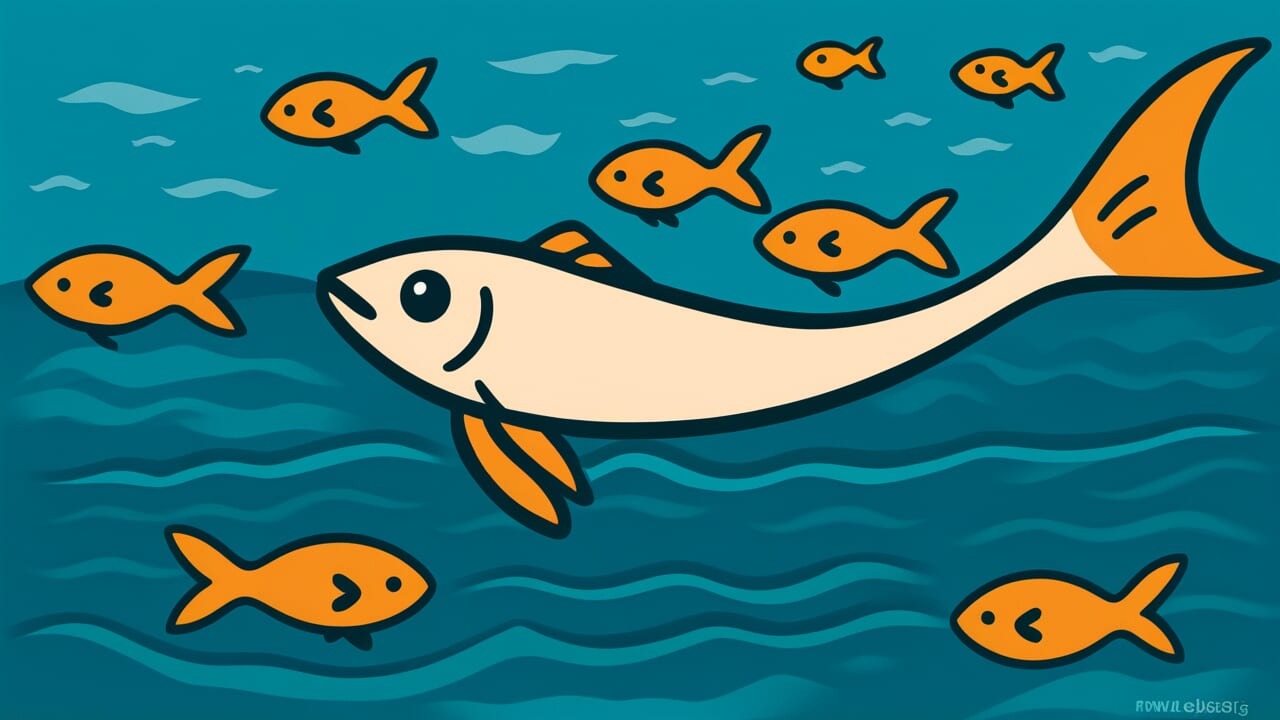How to Read “There are plenty of fish in the sea”
Uo wa umi ni ikura demo iru
Meaning of “There are plenty of fish in the sea”
The proverb “There are plenty of fish in the sea” means that even if you miss one opportunity or choice, there are many other similar or even better opportunities available.
This proverb is used when you don’t need to become overly attached to something specific or regret a lost opportunity too much.
In romance, job hunting, business deals, and various life choices, it warns against narrowing your vision by fixating too much on one chance.
This way of thinking holds important meaning in modern society too.
It teaches us the importance of having the flexibility to look forward and seek the next possibility, rather than being trapped by one failure or breakup.
It’s an expression that gives us a positive perspective: the world is vast and possibilities are infinite.
Origin and Etymology
The origin section could not be generated.
Usage Examples
- I didn’t get into my first-choice company, but there are plenty of fish in the sea, so I’ll look for the next one
- I encouraged my friend who was depressed about being rejected by telling them there are plenty of fish in the sea
Universal Wisdom
Behind the long tradition of the proverb “There are plenty of fish in the sea” lies a deep insight into the human tendency toward attachment.
Everyone has a tendency to become strongly captivated by things they couldn’t obtain or things they lost.
The one fish that swam away seems like the only fish in the world. This psychology has repeated itself in every situation, whether in romance or work.
And that attachment narrows our vision, making us unable to see the countless possibilities that are actually right in front of us.
Our ancestors understood this human weakness well.
That’s why they used the vast and abundant image of the sea to remind us of the magnitude of the world’s possibilities.
Even if you lose one, there are countless fish in the sea. This simple fact has the power to free a heart trapped by attachment.
What this proverb shows is not resignation, but hope.
The truth that failure and separation are not endings, but doors to new beginnings.
It’s wisdom that gives courage: life is not a series of one-time-only chances, but is filled with abundant possibilities where you can start over again and again.
When AI Hears This
The human brain has a habit of estimating the whole from the quantity visible right in front of it.
When lots of fish are caught at the shore, people fall into the illusion that “if there are this many in the whole sea, there must be infinite fish.”
Cognitive science calls this the availability heuristic. It’s a mental shortcut where we judge based on information we can easily recall or see.
What’s interesting is that people in the era when this proverb was born couldn’t notice this illusion because fish were actually abundant.
For example, the seas around Japan in the Edo period had tens of times more fish than today.
If you have big catches every day, it’s natural to feel “they can’t possibly decrease.”
However, humans cannot intuitively understand exponential decline, meaning change that accelerates.
Even when 90 percent remains, or 80 percent remains, the catch in front of you doesn’t change that much.
So people keep judging “it’s still okay.”
Modern marine scientists warn that about one-third of the world’s fishery resources are in a state of overfishing.
Yet many people feel “the sea is vast, so it’s fine.” This is proof that the illusion of abundance shown by this proverb affects human intuition more strongly than scientific data.
This proverb ironically embodies the cognitive blind spot that the abundance in our visible range is actually just a small part of the whole.
Lessons for Today
What this proverb teaches us living in modern times is the courage to believe in freedom of choice and the abundance of possibilities.
In modern society, the success and happiness of others has become more visible through social media and other means.
This has increased anxiety and impatience about missing one chance.
Driven by the obsession that “if I miss this opportunity, I’ll never get another chance,” we sometimes make unreasonable choices.
However, what’s truly important is not becoming overly attached to each individual opportunity.
It’s having the calmness to discern what truly has value for you.
An unsuitable job, an unhealthy relationship, unreasonable conditions. You don’t need to cling to such things.
The world is vast, and places and people that suit you definitely exist.
When one door closes, it may not be a failure but a liberation to search for a better door.
There are plenty of fish in the sea. Keep these words in your heart, let go of attachment, and maintain the flexibility to look toward new possibilities.
Wonderful opportunities you haven’t yet seen are waiting in your life.



Comments